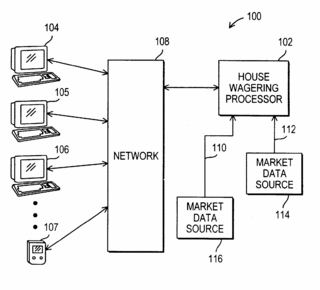
HAS THE EU STARTED ITS "STATE-STREET" MARCH? In a great heads-up from Axel Horn and his IP::JUR Blog, the Royal Court of Justice (UK) recently issued an opinion on a duo of business-method patents ("automatic real-time client credit management, real-time online corroborated wager prices, real-time interactive transaction confirmation, automatic price-spread adjustments, automatic setting of forward pricing, automatic wager-tracking indices, automatic dealer hedging, automatic client and dealer defined wagering limits, and multiple-price wagering"). Axel does a good summary of the case on his site.
The interesting thing about this decision is how openly the Deputy Judge heaped scorn on the concept of "technical" or "technical contribution", as is currently required in the EPO and the member states regarding software patents. When the US grappled with these same concepts 20 years ago, the district courts and the Federal Circuit kept contorting themselves and the caselaw in an ultimately fruitless attempt to define what kinds of software, and in what format, could be patented. Ultimately, the Federal Circuit realized that any "bright-line" rules (with a few obvious exceptions) regarding software were inherently unworkable. By the time State Street was decided, it was concluded that just about any type of software could be eligible for patent protection.
This UK decision should be of interest to anyone seeking to obtain patent protection in the EU, and it exemplifies the hit-or-miss examination process in the EU in the technical fields (yes, I'm using that term) of software and computer-related inventions:
What is an 'invention' (in the sense I am now concerned with) is a topic bedevilled by verbal formulae – and by the sweeping of problems under the carpet. So, before I go any further I want to bring some of those problems out into the light of day.
But first: does it really matter? Is it merely a sterile argument about the meaning of words? To which I answer that whoever controls the meaning of 'invention' controls what can be patented and hence an important aspect of industrial policy. There can be but one justification for having a patent system, and that is that
it is good for the people of the country. If the patenting of certain things does more harm than good, it matters. Patents that are wrongly granted can be very expensive to challenge and may deter small and medium enterprises.
At the risk of some inaccuracy, patents are supposed to be granted for non-obvious advances in technology. I said "at the risk of some inaccuracy". We sense that we know 'technology' when we see it. And no doubt that is correct, most of the time.
But it is not correct all of the time. Therein lies the delusion. You can prove that for yourself by trying to find a definition of 'technology' that everybody can agree on. The more you try, the more you will discover what a horribly imprecise concept it is. (Would it cover an astro-navigation chart? Naval tactics? Double-entry bookkeeping? The phonetic alphabet?) Many have tried to frame an acceptable definition, but to the best of my knowledge none have succeeded. It is like the
equally vexing question, "What is Art?". The hard truth is this: concepts of that sort have no existence, and words of that sort have no meaning, except by human
convention; but human beings are hopelessly in disagreement at the margin. And it is, precisely, at the margin of uncertainty that cases come up for decision.
How, then, does the law define what is an 'invention'? The answer is that nobody has ever come up with a satisfactory, all-embracing definition and I do not suppose anybody will.
This sounds astonishingly close to the Federal Circuit's decision in Alappat, where the Federal Circuit did away with most of the Freeman-Walter Abele (FWA) "test" for patentable subject matter, and started to set the stage for State Street, which was decided 4 years later. The FWA test was as follows:
(1) Is a mathematical algorithm recited directly or indirectly in the claims?
(2) If so, is the claim, as a whole, applied to or limited by physical elements or process steps?
(3) If not, then the subject matter would not be patentable. However, when an algorithm is applied to one or more elements of an otherwise statutory process claim, the subject matter is patentable.
Sounds close to what the EU is doing right now. One can only hope that questions like these from the courts and from EU Patent Office officials will ultimately sway the legislators into reversing the folly of the last year regarding software patents. In the meantime, we can only hope and wait.
BTW, the applications that were under consideration in the UK decision were ultimately rejected as being business methods . . . you can't win them all.





Just because lawyers can't draw a distinction with their vocabulary doesn't mean that no bright line distinction exists. My article in the IEEE Spectrum draws a line between states in software and state machines in hardware which works pretty well, if I may say so. Since publishing it, I've had a good time getting emails from smarty-pants engineers and legal types who think they know of a technology which blurs the distinction, and then discussing it with them until they see how clear the distinction is.
Judges and lawyers need to stop thinking they can derive technical details via introspection and instead listen to engineers more. If every lawyer who sees no difference between software and other technical inventions talked to one practitioner who does see a difference, maybe we'd see some progress.
Post a Comment